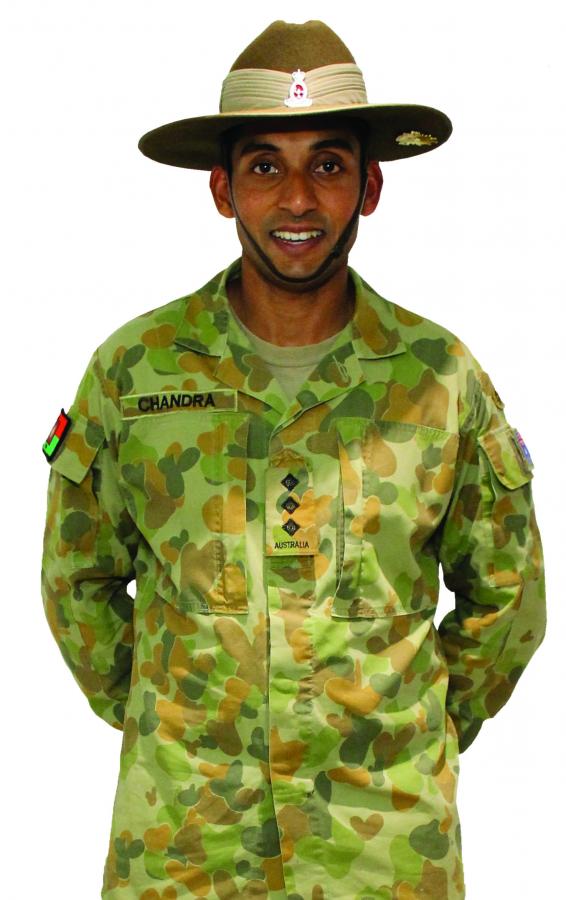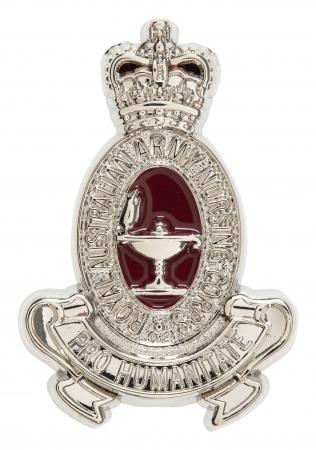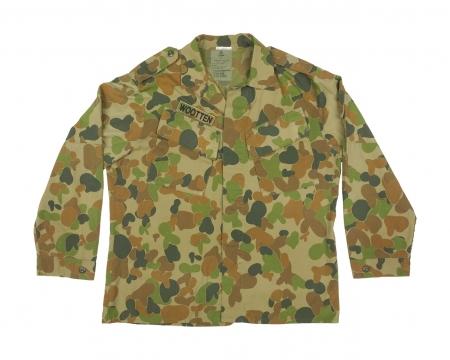Captain Roneel Chandra

Captain Roneel Chandra. (Photograph courtesy of Roneel Chandra)
After he left high school, Roneel Chandra of New South Wales went to university to study nursing. As a little boy, he had often accompanied his mum to work in a nursing home. He would help her feed and care for the elderly patients, so nursing seemed like an obvious career choice for him. However, his love of adventure motivated him to join the Australian Army a few years later; he served first as an infantry soldier, and then as a nursing officer in the Royal Australian Army Nursing Corps (RAANC).
During the six months he spent in Afghanistan in 2008, Roneel was regularly called on to assist with aero-medical evacuations using helicopters. He described it as “flying around over the desert picking up casualties, doing my job”. One night, a trip out into the field to pick up some wounded soldiers did not go according to plan.
Coming in to land in the dark, and with poor visibility, the US Black Hawk pilot misjudged the landing zone, and the helicopter tipped over. Roneel and the two American medics with him were thrown around in the back of the helicopter. Despite their own injuries, Roneel remembered that “our priority was to look for casualties, and we made sure that the two waiting soldiers were OK and stabilised … Their families put a lot of trust in you, they rely on you to do the best job you can.”
Because the helicopter was so badly damaged, all the men had to wait overnight in the desert. Roneel gave the wounded soldiers whatever treatment he could, and made sure they were comfortable. They were all picked up by a new helicopter the next morning and airlifted safely back to the Australian base at Tarin Kot.
A Black Hawk helicopter conducts a casualty evacuation in Afghanistan, 2011. (Nick Fletcher)
If any Australians were wounded Roneel would get a radio call for help: “Chansy, grab your gear and head out to the chopper that’s about to leave.”
Even though Roneel was not badly injured in the accident, he still spent some time in hospital under observation. Sometimes even nurses need nursing, and he gained a better appreciation of the care provided by the Australian medical team.
Like many Australian service nurses before him, Roneel is motivated by a keen sense of loyalty to his mates, but also by his devotion to saving the life of anyone who needs treatment, including enemy soldiers and local people: “We’re there for the soldiers, to make sure they get first-class treatment and come home safely to their loved ones. But as a nurse you don’t discriminate; they’re all casualties of war.”
Activities
- The hat badge below includes the motto of the Royal Australian Army Nursing Corps (RAANC), pro humanitate.
- Investigate the meaning of these Latin words. How might they relate to the work undertaken by nurses?
- Come up with a list of words that could be used to describe nurses.

- Below are photographs of various first-aid/medical kits used during times of conflict.
- Bandages are common to each kit, but can you identify some of the items that have changed over time? You can read more about the contents of each kit by searching for the object number on the Australian War Memorial website.
- Each kit has served a different purpose. Who do you think might have carried each kit, and where would they have been stored?
Australian Army general purpose field first-aid kit used in Vietnam, c. 1970.
First aid kit used by a member of the Australian Army Training Team Iraq, c. 2000s.
- Referring to the two photographs of Roneel Chandra in this case study, you might notice that Roneel is wearing two different shirts, examples of which can be seen below:
- Find out what DPCU and DPDU stand for.
- Why would service people need to have these different uniforms?
- Can you think of any specific environments that would require a different type of camouflage pattern or colour?

The DPCU shirt produced for the Australian Army.
- The first male nursing officers entered the services in the 1970s. Female and male nursing officers of the same rank were given equal pay, and women could now also continue to serve after they married or had children.
- Can you think of other jobs traditionally considered to be female roles which are now undertaken by people regardless of their gender?
- Can you think of any roles in the Australian Defence Force today which are only available to men, or only for women? More information can be found on the Defence Jobs website.
Related objects
- Disruptive Pattern Camouflage Uniform (DPCU) shirt
- Royal Australian Army Nursing Corps (RAANC) hat badge
- Bandage
- Magnifying glass
Bibliography
Australian War Memorial exhibition on nurses.






